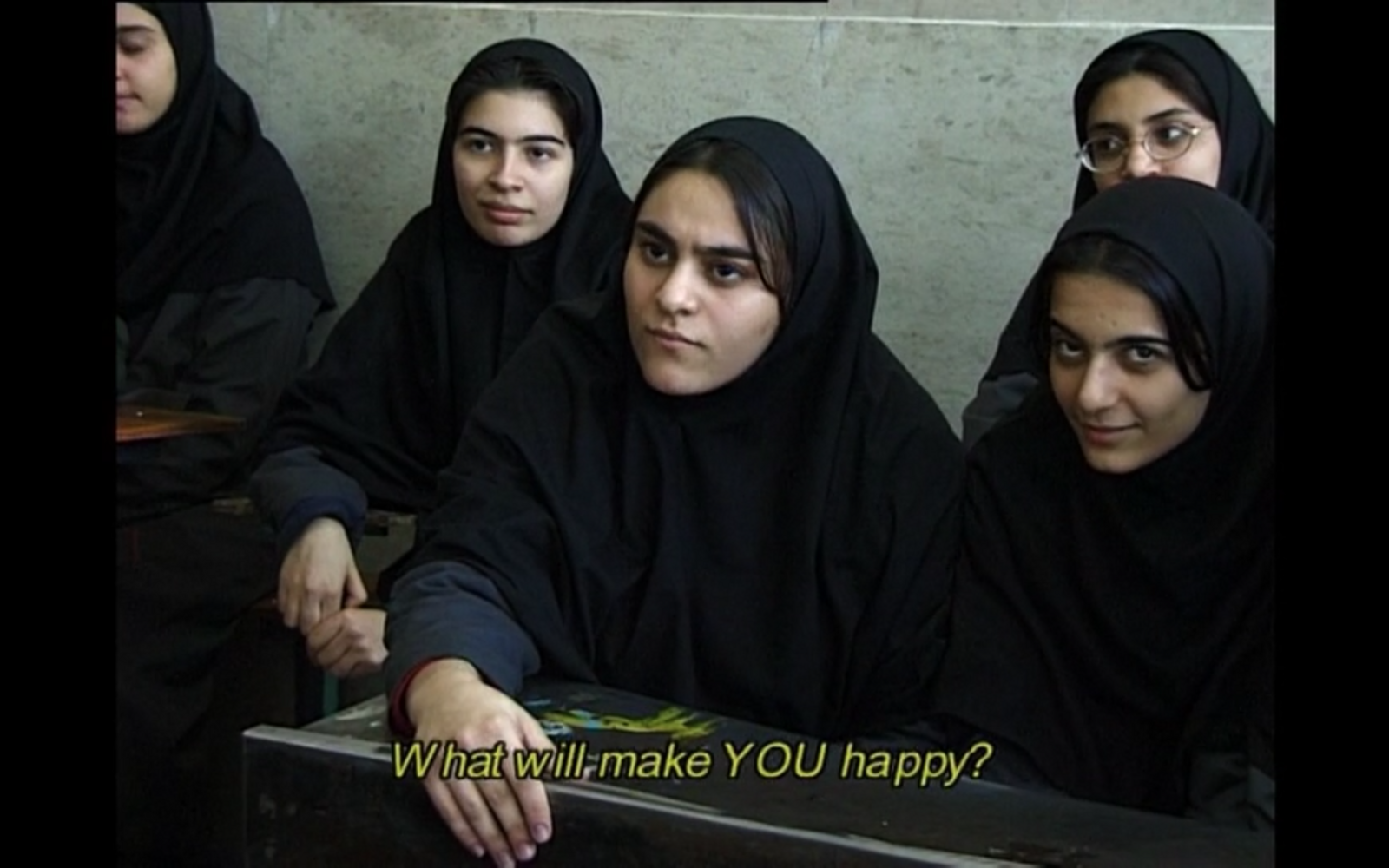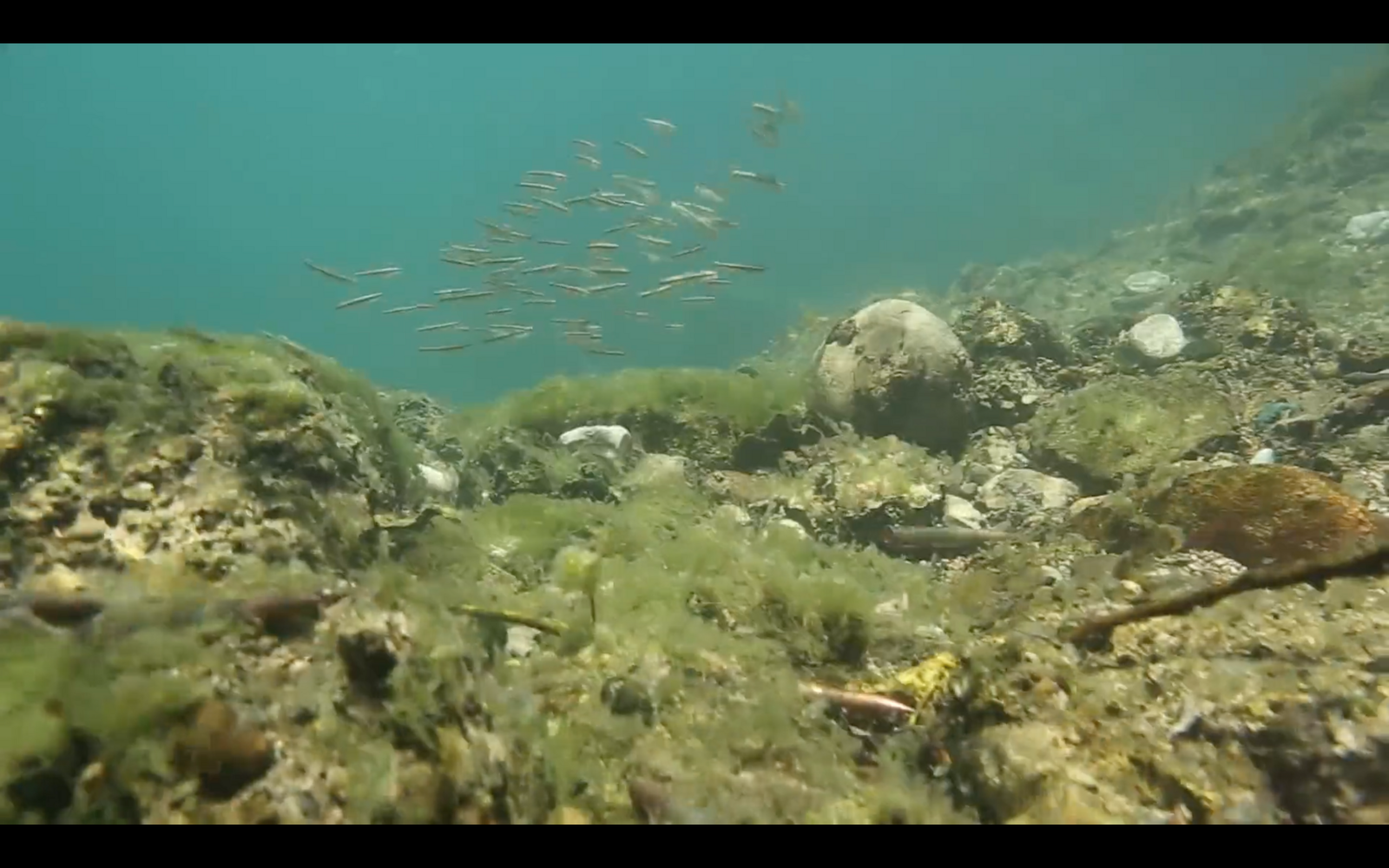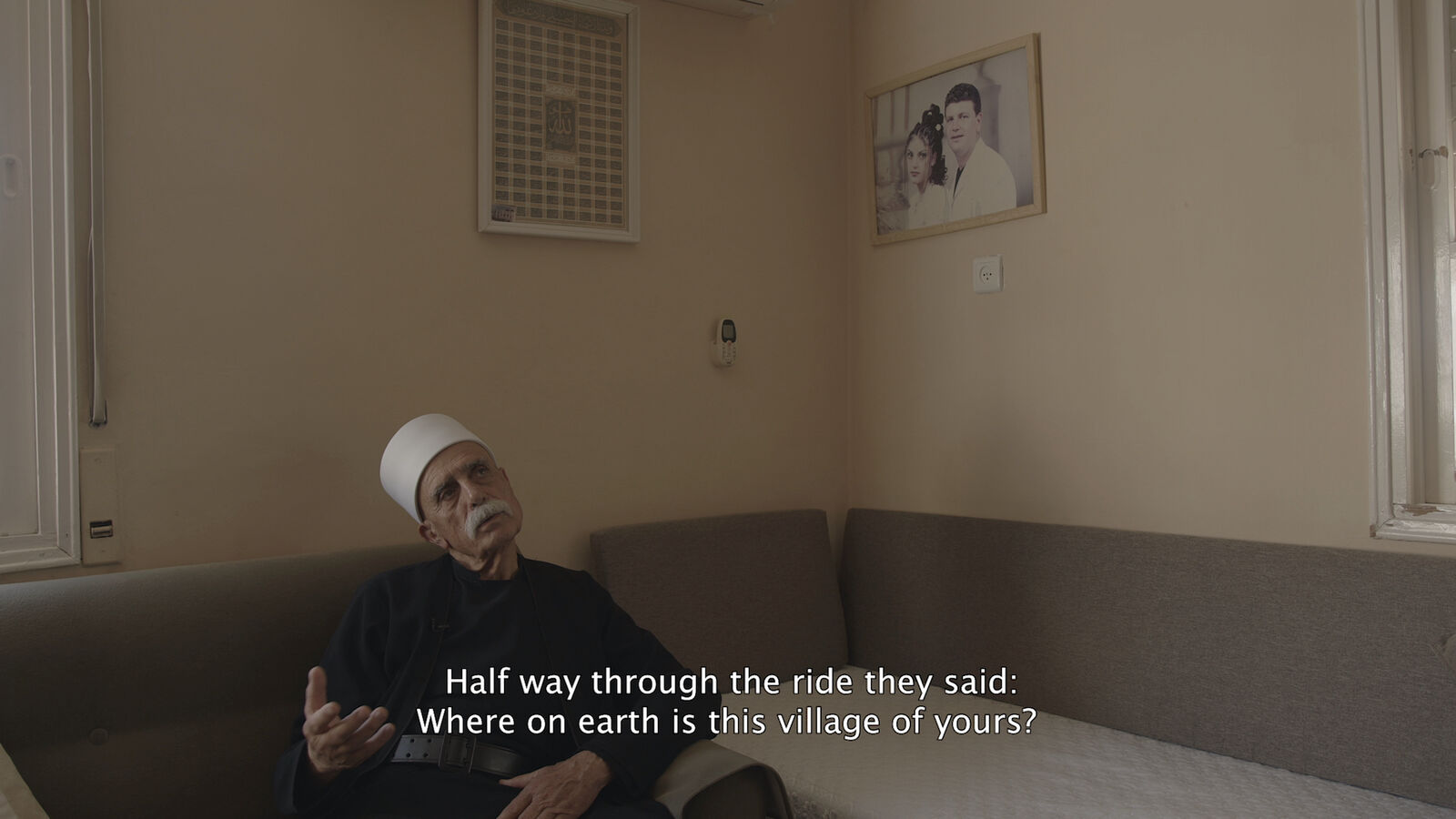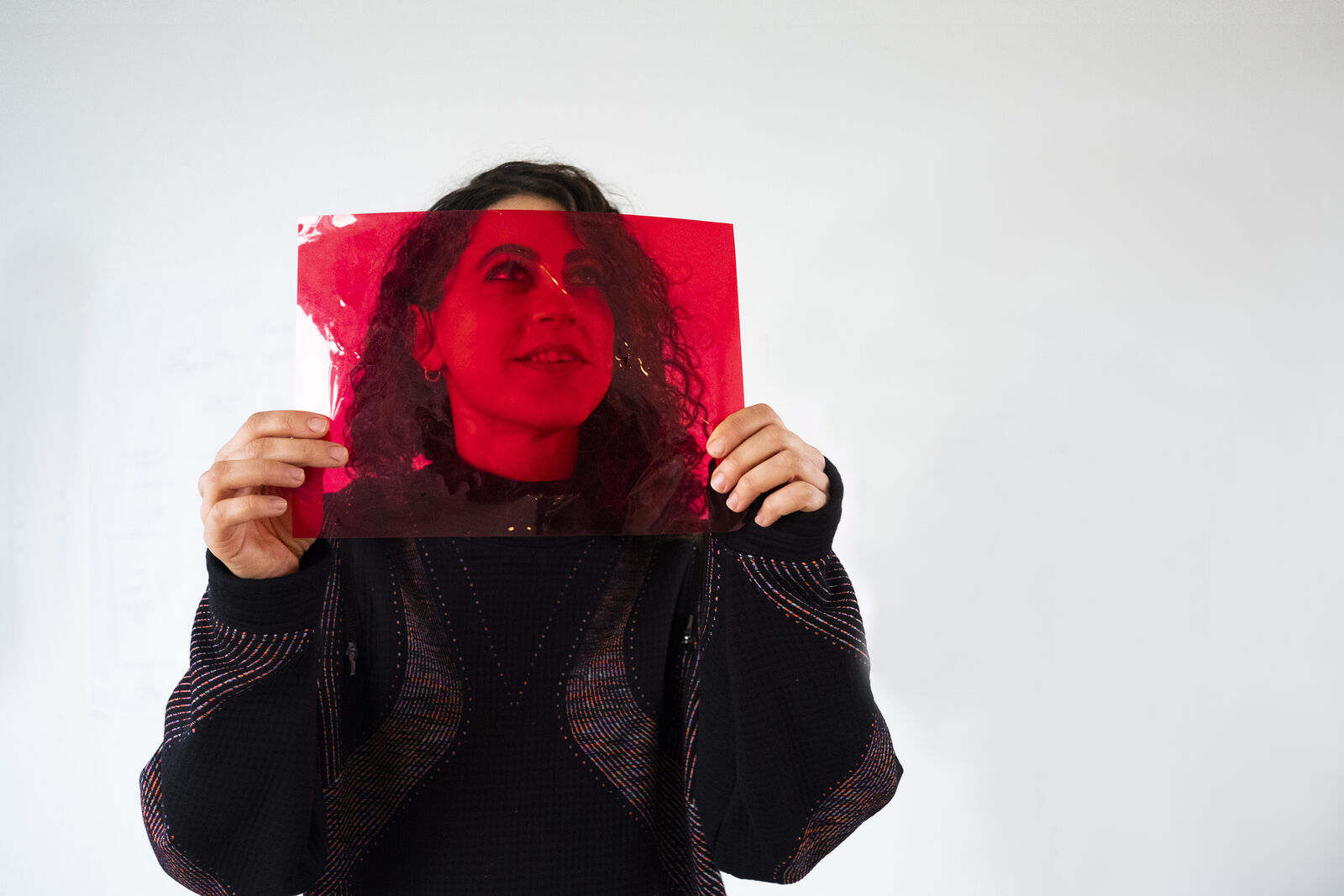Public Programme: Filmscreening & discussion Sarmad-collective
17:30–20:30
Public programme
Inas Halabi – After the Last Sky
Sarmad Collective: Filmscreening & discussion

Dream of Silk, by Nahid Rezaei, 2003 (52 mins)

Drowned in Neretva River, by Armina Pilav, Damir Ugljen, and Matija Kralj, 2020 (24 mins)

Ziyarat (زیارت, The Pilgrimage), by Samaneh Moafi, 2020 (10 mins)
Uniforms, Sugarcanes, Debris
Enclosures of Violence
Enclosing, Pilgrimage, Drowning
As part of the present solo-exhibition for Inas Halabi at de Appel, After the Last Sky, Sarmad Platform will be presenting a programme of three film screenings followed by a discussion. The programme is a response to Inas Halabi’s work using Sarmad's ongoing research on image, power, and resistance.
The three films that will be on screen are Dream of Silk (2003), Ziyarat (زیارت, The Pilgrimage) (2020) and Drowned in Neretva River (2020). They are made in two different geographical locations, namely Iran and Bosnia, and explore the traumatic violences of oppression that is embedded into bodies, spaces, and landscapes. Using diverse techniques from documentary to archival studies, mapping and storytelling, the films make different forms of violence sensible.
The collective discussion with the audience will be centered around how landscape can be seen as an expression of violent systems of control and the role of image- and film-making in representing that violence.
Sarmad is an independent, non-profit interdisciplinary platform for research, publishing, collective thinking, and education in the fields of art, architecture and design. Based in Rotterdam, the Netherlands, Sarmad has been evolving since its foundation in 2012. It started as a magazine for experimental photography and evolved into a platform working across different disciplines from photography, visual arts and architecture to writing, performance art and film.
Tickets
A ticket for this event is 5 euros and can be purchased here.
About the films
Dream of Silk, by Nahid Rezaei, 2003 (52 mins). 20 years after her graduation, Nahid, Iranian filmmaker, goes back to her high school and asks the students about how they see themselves in 20 years. Shot within the walls of the all-girls school, the film investigates the social, political and cultural landscape of the country through the mental landscapes of the teenage girls in their conversations. Today is that imaginary 20 years later and a feminist revolution is unfolding.
Ziyarat (زیارت, The Pilgrimage), by Samaneh Moafi, 2020 (10 mins). The film is a “pilgrimage” to the Dez and Karkheh rivers in the Khuzestan Province (southwest Iran). The film is a performative retelling of a story by writer and anthropologist Jalal al-e Ahmad weaves together personal, media, and archival documentation. It uses installation, objects, imagery, and movement to shed light upon the maintenance of the sugarcane industry and its relationship to the ecology of the region in the contested political geography.
Drowned in Neretva River, by Armina Pilav, Damir Ugljen, and Matija Kralj, 2020 (24 mins). Violent transformation of Mostar and Neretva started during the war in Bosnia (1992-1996). Historically, the city has been developed along the river, connected with nine bridges which were important spaces of sociality. As a consequence of the war, Neretva and her organic system changed in environmental terms but also in its spatial and social role. In the wartime, the river ecosystem started to deposit anorganic materials, pieces of exploded bombs, remnants of temporary bridges and other debris. In the research on Un-war spaces, the authors “think with” Neretva and through narratives on architecture, nature, mapping, underwater archeology, represent her traumatic hybrid condition.


